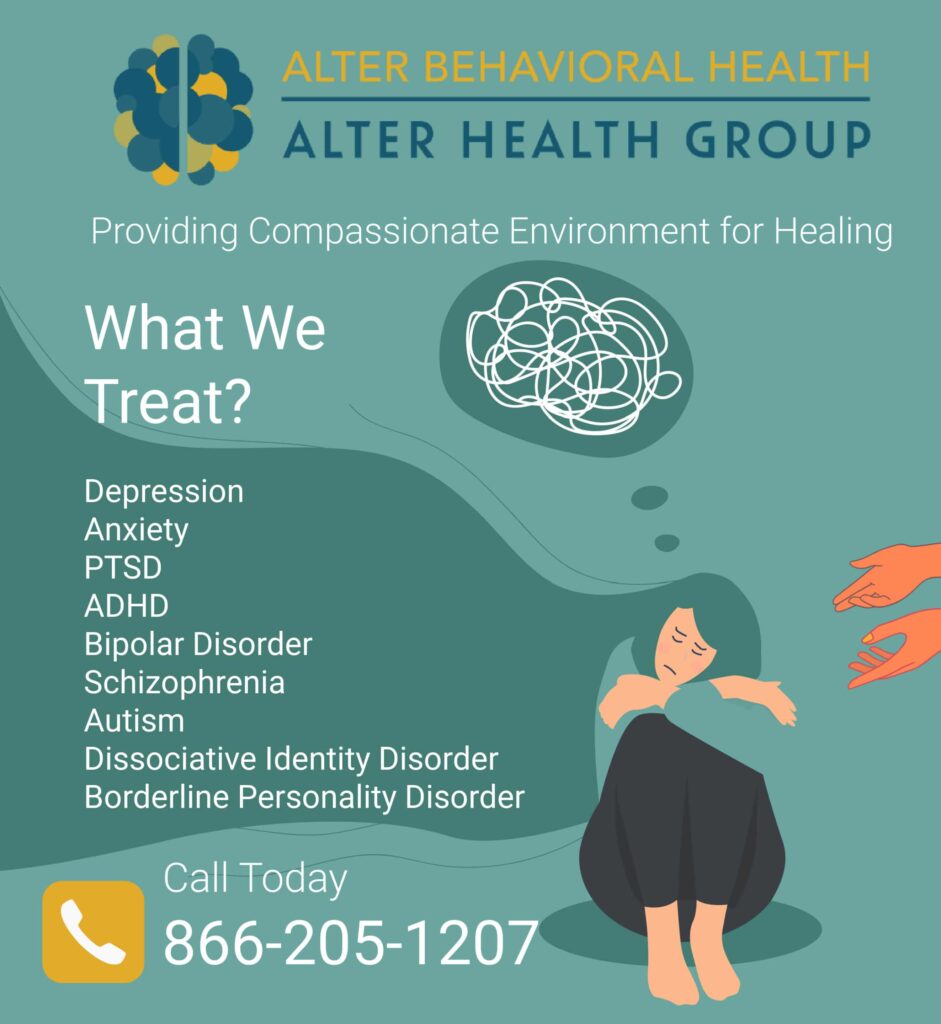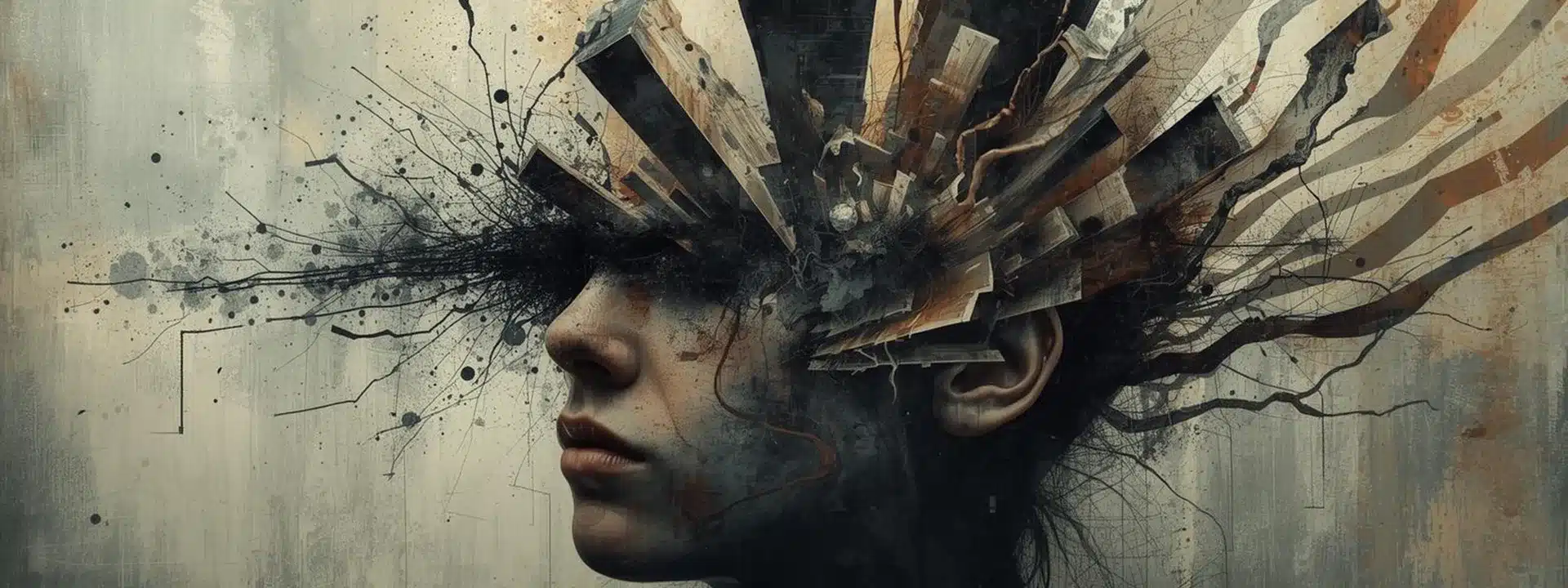Schizophrenia and psychosis are often connected, however it is possible to have one psychosis caused by other conditions or habits. Schizophrenia can cause psychosis, but psychosis is not only a symptom of schizophrenia. An individual can experience psychosis without being diagnosed with schizophrenia. Schizophrenia involves hallucinations, delusions, and disorganized thinking and behavior. Psychosis includes symptoms like hallucinations and delusions that affect a person’s mind and can be triggered by various health conditions, medications, or drug abuse.
Understanding Schizophrenia
Schizophrenia affects approximately 1% of Americans, making it harder for individuals to understand. Although it seemingly affects a small percentage of the population, 1% is still over 3 million people.
Schizophrenia often makes itself known through two main symptoms: hallucinations and delusions. People perceive hallucinations as sights or sounds that aren’t present for others, while they hold delusions as fixed, false beliefs, even when evidence proves them wrong. Diagnosing these symptoms can be complicated because many individuals with schizophrenia may not realize they are experiencing them.
Beyond these two core symptoms, other signs of schizophrenia may include:
- Difficulty planning and following through with tasks
- Loss of interest in previously enjoyable activities
- Speaking in a flat tone with limited facial expressions
- Low energy levels
- Trouble processing information
- Difficulty focusing
These symptoms can overlap with other mental health conditions, but when several occur together, they may point to a schizophrenia diagnosis.
There is no “cure” for schizophrenia, and individuals who are diagnosed often require lifelong therapy and medication management. A schizophrenia diagnosis will depend on a person’s genetics, behavioral patterns, and co-occurring mental health conditions. It has been shown to be distributed evenly amongst men and women, but men may see earlier onset rates.
How Psychosis Differs

Psychosis can be a symptom of schizophrenia, but it can also occur on its own. Psychosis occurs when the brain processes information in a way that causes a lack of awareness of reality. An individual experiencing psychosis may have disturbed thoughts and perceptions and may have difficulty knowing what is real and what is not. People experiencing psychosis may be fearful that people are trying to hurt them or send subliminal messages. It may also include incoherent or inconsistent speech and behavior that does not match the situation they are in.
Additional signs of psychosis include:
- Suspiciousness, paranoid ideas, or uneasiness with others
- Trouble thinking clearly and logically
- Withdrawing socially and spending a lot more time alone
- Unusual or overly intense ideas, strange feelings, or a lack of feelings
- Decline in self-care or personal hygiene
- Disruption of sleep, including difficulty falling asleep and reduced sleep time
- Difficulty telling reality from fantasy
- Confused speech or trouble communicating
- Sudden drop in grades or job performance
Psychosis often sets in during young adulthood from late teens or mid-20s, but can realistically be triggered at any age. If an individual has neurological conditions they may be at higher risk for psychosis later in life.
Schizophrenia is not the only condition that can cause psychosis. Bipolar disorder, severe depression, Parkinson’s disease, Alzheimer’s disease, and other dementia conditions can also spark it.
Treatment for Schizophrenia and Psychosis

Treatment for schizophrenia typically revolves around medication management, which plays a crucial role in most cases. With the right approach, individuals living with schizophrenia can experience a significant improvement in their quality of life. Unfortunately, more than two-thirds of people globally with this condition do not have access to care from a specialist. Since not all treatments are the same, finding a facility that focuses on schizophrenia care is essential for achieving the best possible outcomes.
At Alter Behavioral Health, we ensure that each client with schizophrenia undergoes a comprehensive evaluation and receives a personalized care plan. Our medical team provides 24/7 monitoring to manage medications and symptoms, with crisis intervention staff ready to address any issues that may arise and prevent setbacks in the client’s progress.
Our treatment approaches for schizophrenia and psychosis include:
- Acceptance and Commitment Therapy (ACT)
- Cognitive-Behavioral Therapy (CBT)
- Medication management
- Mindfulness practices
- Narrative Therapy
- Solution-Focused Therapy
We focus on creating individualized treatment plans tailored to each client’s unique needs. Our care team continually reviews and adjusts these plans to ensure the best path toward stabilization.
The length of treatment varies depending on the individual’s condition. Our programs can be adapted to different levels of care, including crisis stabilization & intervention, residential mental health treatment, partial hospitalization programs, and intensive outpatient treatment. In most cases, ongoing medication management is required to effectively manage schizophrenia throughout a person’s life.
Find Treatment Near You
Getting treatment for schizophrenia and/or psychosis is important for lifelong management. Schizophrenia and psychosis treatment can be intimidating, especially if you don’t know where to start. At Alter Behavioral Health, we prioritize our clients to ensure they receive the highest quality of care possible. We offer the full continuum of care, so that clients can get the mental health support they need at every stage.
If you or a loved one are exhibiting signs of schizophrenia or psychosis, give our admissions team a call today. We can get you started with a treatment program that meets your needs and is accepted by your insurance. Don’t let mental health run your life, manage it with therapy, medication, and other methods to live a fulfilling life.
About Alter
Alter is a behavioral healthcare provider that specializes in evidence-based clinical treatment approaches. We provide a wide range of programs for adults and families experiencing mental health conditions including schizophrenia, depression, borderline personality disorder, anxiety, substance abuse, and more. This is done through client-centered care for a full-continuum of treatment. We serve the entire U.S. population from our revolutionary locations throughout sunny Southern California. Whether an individual needs 24/7 care or wants an outpatient program – we are there to guide every step of the journey. For more information, give us a call at (877) 613-9776 or visit our website at alterbehavioralhealth.com.



